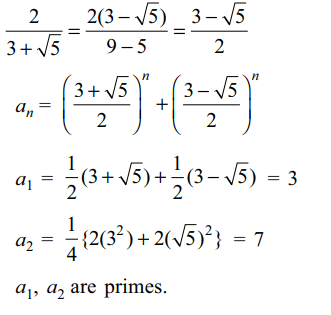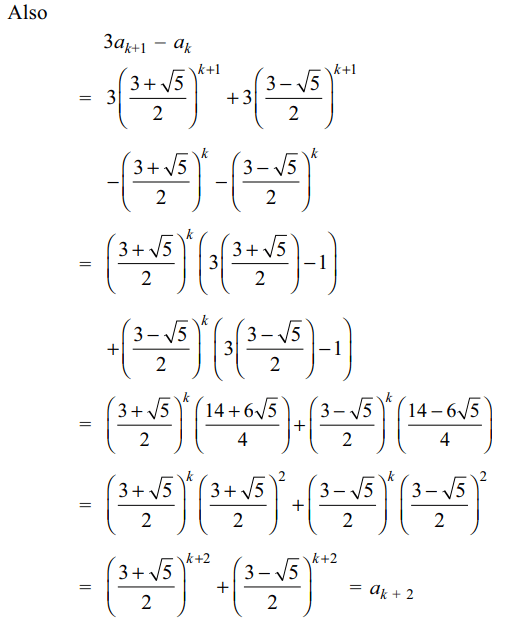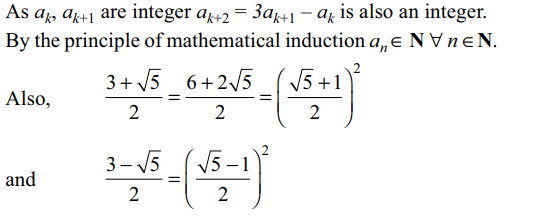1. The greatest integer less than or equal to\[\left(\sqrt{2}+1\right)^{6}\] is
a) 196
b) 197
c) 198
d) 199
Explanation:


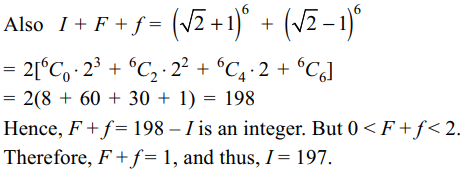
2. Sum to (n + 1) terms of the series \[\frac{C_{0}}{2}-\frac{C_{1}}{3}+\frac{C_{2}}{4}-\frac{C_{3}}{5}+....\]
is
a) \[\frac{1}{n+1}\]
b) \[\frac{1}{n+2}\]
c) \[\frac{1}{n\left(n+1\right)}\]
d) \[\frac{1}{\left(n+1\right)\left(n+2\right)}\]
Explanation:
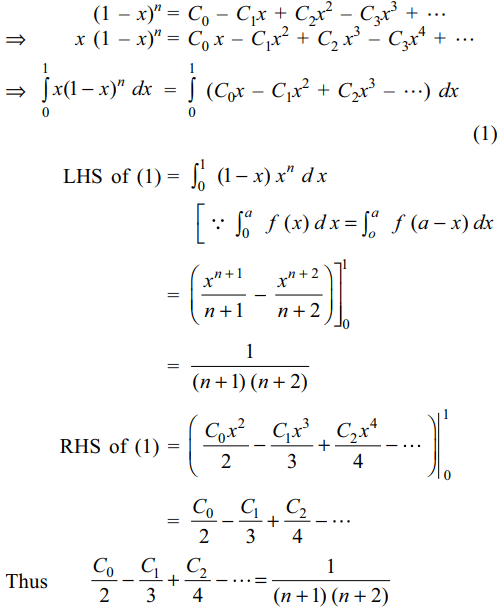
3. Value of the expression \[\frac{C_{1}}{2}+\frac{C_{3}}{4}+\frac{C_{5}}{6}+....\] is
a) \[\frac{2^{n}-1}{n+1}\]
b) \[\frac{2^{n}}{n+2}\]
c) \[\frac{2^{n-1}}{n}\]
d) \[\frac{2^{n}}{n+1}\]
Explanation:
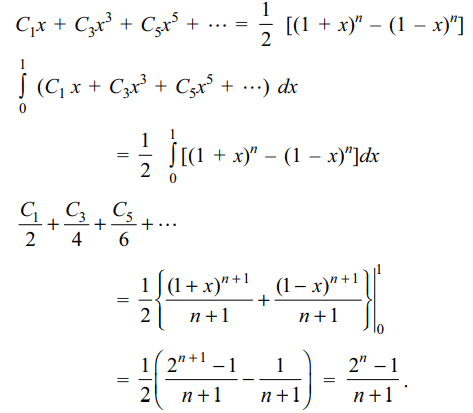
4. If \[\left(5+2\sqrt{6}\right)^{n}=m+f\] , where n and m
are positive integers and \[0\leq f< 1\] , then \[\frac{1}{1-f}-f\] is equal to
a) \[\frac{1}{m}\]
b) m
c) \[m+\frac{1}{m}\]
d) \[m-\frac{1}{m}\]
Explanation:

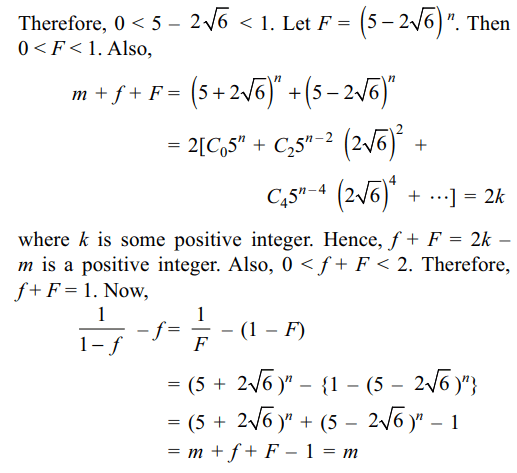
5. The number of distinct terms in the
expansion of \[\left(x_{1}+x_{2}+....+x_{n}\right)^{3}\] is
a) \[^{n+1}C_{3}\]
b) \[^{n+2}C_{3}\]
c) \[^{n+3}C_{3}\]
d) \[^{n}C_{3}\]
Explanation:
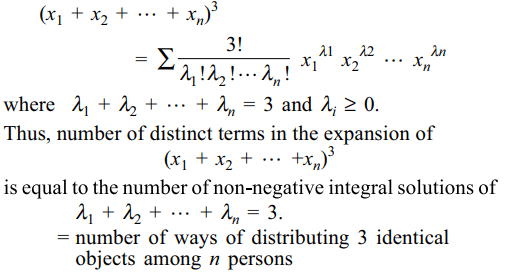

6. cofficient of \[x^{10}\] in the expansion of\[\left(1+x^{2}-x^{3}\right)^{8}\] is
a) 476
b) 496
c) 506
d) 528
Explanation: We rewrite the given expression as
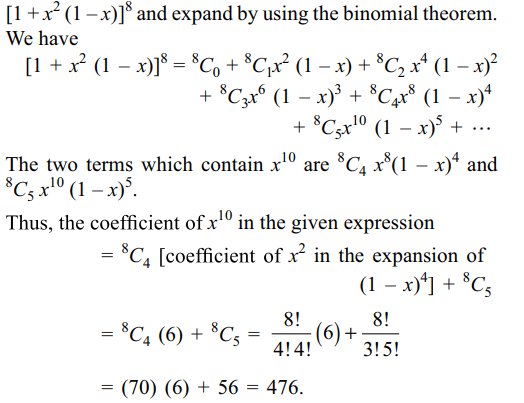
7. The remainder when \[2^{2003}\] is divided by
17 is
a) 2
b) 4
c) 8
d) 16
Explanation:


8. The interval in which x (> 0) must lie so
that the greatest term in the expansion of \[\left(1+x\right)^{2n}\] has the
greatest coefficient is
a) \[\left(\frac{n-1}{n},\frac{n}{n-1}\right)\]
b) \[\left(\frac{n}{n+1},\frac{n+1}{n}\right)\]
c) \[\left(\frac{n}{n+2},\frac{n+2}{n}\right)\]
d) none of these
Explanation: Greatest Coefficient in the expansion of
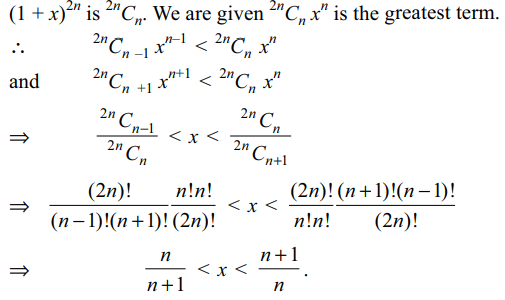
9. The largest term in the expansion of
\[\left(3+2x\right)^{51}\] , where x = 1/5, is
a) 5th
b) 6th
c) 8th
d) 9th
Explanation: Greatest term in the expansion of (x+y)n is kth
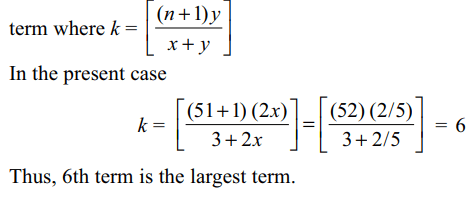
10. Let \[a_{n}=\left(\frac{3+\sqrt{5}}{2}\right)^{n}+\left(\frac{2}{3+\sqrt{5}}\right)^{n}\forall n\epsilon N\]
a) \[a_{1},a_{2}\] are primes
b) If \[a_{k},a_{k+1}\] are integers then \[a_{k+2}\] is an integer
c) \[a_{n}\] is an integer for each \[n\epsilon N\]
d) All of the above
Explanation:
